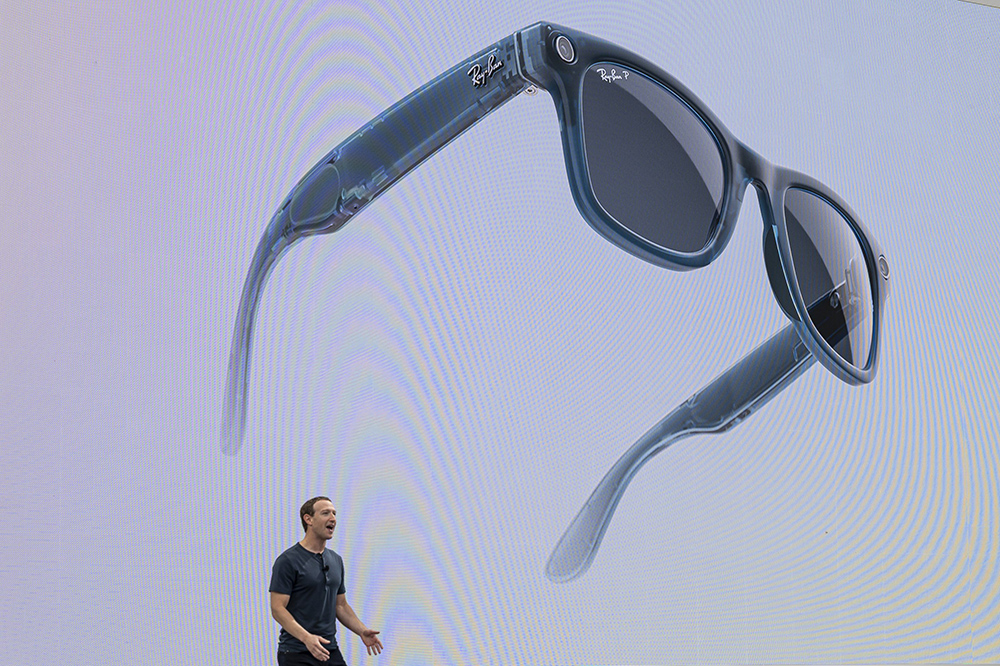
我們無法預(yù)測人工智能將以何種方式改變生活,,但毋庸置疑的是,虛擬助手將幫助我們駕馭這個(gè)美麗新世界,。其中一些虛擬助手將內(nèi)置在智能手機(jī)中,,但大大小小的公司也都希望消費(fèi)者能為額外的人工智能小工具找到存儲(chǔ)空間,也許其中一些小工具最終會(huì)完全脫離手機(jī),。
這一類別產(chǎn)品的起步并不順利,,原因是今年最受期待的幾款人工智能設(shè)備都鎩羽而歸。
首先是Humane公司的AI Pin,,這款售價(jià)699美元,、月費(fèi)24美元的胸針可以將圖像投射到用戶的手上。這款火柴盒大小的設(shè)備本應(yīng)讓人們擺脫對(duì)智能手機(jī)的依賴,,但卻因成本高,、性能差而遭到評(píng)論家的抨擊。然后是售價(jià)199美元的手持設(shè)備Rabbit R1,,它可以回答問題并識(shí)別攝像頭看到的事物,。評(píng)論家們對(duì)Rabbit R1的評(píng)價(jià)比較友善,但仍然質(zhì)疑它的意義,,因?yàn)槭謾C(jī)如今也能做很多同樣的事情,。
那么,,什么才是理想的人工智能小工具呢?最優(yōu)設(shè)計(jì)是否會(huì)釋放出全能的人工智能精靈,?抑或是我們現(xiàn)有的裝備之一,,通過人工智能賦能變得更有用?
Canalys的研究分析師杰克·萊瑟姆(Jack Leathem)表示:“在消費(fèi)電子行業(yè),,人們普遍在為新的大型語言模型(LLM)尋找最佳的硬件應(yīng)用程序,。”隨著各公司競相研發(fā)制勝秘訣,,預(yù)計(jì)會(huì)進(jìn)行大量試錯(cuò),。

聽覺和視覺相關(guān)的小工具
有些人認(rèn)為,答案就是專注于特定任務(wù),。Limitless和Tab AI這兩家獲得風(fēng)險(xiǎn)投資的初創(chuàng)公司正在開發(fā)智能吊墜,,可以聆聽佩戴者的對(duì)話,并將其轉(zhuǎn)錄成數(shù)字形式,。
蘋果(Apple)和谷歌(Google)正在尋求將現(xiàn)有的耳機(jī)和健身手環(huán)等可穿戴設(shè)備變成人工智能小工具,。據(jù)彭博社報(bào)道,以蘋果的無線耳機(jī)AirPods為例,,這可能需要在耳機(jī)中集成微型攝像頭,,這樣人工智能就可以對(duì)各種刺激做出反應(yīng)。
臉書(Facebook)母公司Meta提供了一個(gè)很有前景的方法,。去年年底,Meta推出了與法意眼鏡巨頭EssilorLuxottica合作的第二代產(chǎn)品:雷朋(Ray-Ban)Meta智能眼鏡,。
Wayfarer版眼鏡和湯姆·克魯斯(Tom Cruise),、泰勒·斯威夫特(Taylor Swift)以及其他流行文化偶像佩戴的經(jīng)典款幾乎一模一樣。然而,,這款眼鏡的鏡框內(nèi)嵌有一個(gè)微型攝像頭,、一個(gè)無線芯片和其他組件,這些組件允許用戶播放網(wǎng)絡(luò)直播和聆聽音樂,。今年4月,,Meta在北美版眼鏡增加了人工智能功能——這一微小但至關(guān)重要的調(diào)整將這款眼鏡從極客新奇物品變成了免提超級(jí)產(chǎn)品的基礎(chǔ)。
有了人工智能,,這款眼鏡讓我們得以一窺“多模態(tài)”人工智能改變游戲規(guī)則的潛力:想知道你在市場上買到的一塊新鮮三文魚有什么美味食譜嗎,?只需看著它,說出幾個(gè)詞就能喚起人工智能的專業(yè)知識(shí)——無需拿出手機(jī)或在谷歌引擎中輸入問題,。根據(jù)評(píng)論,,這種體驗(yàn)仍有點(diǎn)笨拙——放大特定物體并不容易,,而且人工智能本身也和其他聊天機(jī)器人一樣容易出錯(cuò),但其潛力是顯而易見的,。
據(jù)The Verge網(wǎng)站報(bào)道,,Meta首席技術(shù)官安德魯·博斯沃思(Andrew Bosworth)今年6月在一份內(nèi)部備忘錄中寫道:“我們目前擁有市場上領(lǐng)先的人工智能設(shè)備,但仍將加倍努力,,尋找適合可穿戴Meta AI的強(qiáng)大產(chǎn)品市場契合點(diǎn),,圍繞它開展業(yè)務(wù),并擴(kuò)大受眾范圍,?!?/p>
你愿意付多少錢?
Meta并未透露其智能眼鏡的銷量,。佛羅斯特研究研究公司(Forrester)的分析師托馬斯·胡森(Thomas Husson)認(rèn)為,,聯(lián)網(wǎng)眼鏡仍是一種小眾產(chǎn)品,并指出小工具并非Meta的強(qiáng)項(xiàng),。他說:“這是臉書展示其技術(shù)和創(chuàng)新形象的一種方式,。”
不過,,Canalys的萊瑟姆說,,如果Meta的眼鏡受到大眾歡迎,該公司將獲得巨大收益:“這種整合將使Meta的人工智能成為主要助手,,而不是其他供應(yīng)商設(shè)備中的次要助手,。”

總部位于新加坡的Brilliant Labs首席執(zhí)行官博巴克·塔萬加爾(Bobak Tavangar)表示,人工智能小工具是如此個(gè)性化,,它們必須“開放,、可修改、可檢查”,。這意味著開源設(shè)計(jì)和可選擇的大型語言模型,。他的公司最近推出的Frame智能眼鏡配備了一個(gè)人工智能助手,該助手利用OpenAI,、Stability AI和Perplexity的人工智能模型的功能,,包括翻譯、搜索和對(duì)周圍環(huán)境的視覺分析,。
塔萬格說,,Brilliant Labs在頭幾天就售出了數(shù)千副售價(jià)349美元的智能眼鏡。他認(rèn)為,,像Meta這樣以廣告業(yè)務(wù)為主的公司并不適合推出新一代人工智能設(shè)備,,因?yàn)橄M(fèi)者會(huì)擔(dān)心眼鏡獲取的個(gè)人數(shù)據(jù)會(huì)被輸入巨大的廣告引擎,。
Meta沒有回答《財(cái)富》雜志關(guān)于將智能眼鏡數(shù)據(jù)用于廣告目的的問題,不過該公司的隱私政策似乎允許這樣做,。事實(shí)上,,據(jù)The Verge網(wǎng)站7月19日?qǐng)?bào)道,Meta在網(wǎng)絡(luò)廣告領(lǐng)域的最大競爭對(duì)手谷歌也一直在與EssilorLuxottica討論將其Gemini人工智能助手植入未來眼鏡的事宜,。多家媒體報(bào)道稱,,Meta正準(zhǔn)備收購這家眼鏡公司約5%的股份。
隨著人工智能小工具的發(fā)展,,商業(yè)模式可能被證明與硬件設(shè)計(jì)同樣重要:畢竟,,如果小工具制造商不能賺取廣告收入,就可能不得不以更高的價(jià)格出售產(chǎn)品,,或者像Brilliant Labs打算做的那樣,,對(duì)使用人工智能服務(wù)收取月費(fèi)。
盡管人工智能可以完成很多實(shí)用任務(wù),,但還不能拋開經(jīng)濟(jì)效益不談,。(財(cái)富中文網(wǎng))
譯者:中慧言-王芳
我們無法預(yù)測人工智能將以何種方式改變生活,但毋庸置疑的是,,虛擬助手將幫助我們駕馭這個(gè)美麗新世界,。其中一些虛擬助手將內(nèi)置在智能手機(jī)中,但大大小小的公司也都希望消費(fèi)者能為額外的人工智能小工具找到存儲(chǔ)空間,,也許其中一些小工具最終會(huì)完全脫離手機(jī),。
這一類別產(chǎn)品的起步并不順利,原因是今年最受期待的幾款人工智能設(shè)備都鎩羽而歸,。
首先是Humane公司的AI Pin,,這款售價(jià)699美元、月費(fèi)24美元的胸針可以將圖像投射到用戶的手上,。這款火柴盒大小的設(shè)備本應(yīng)讓人們擺脫對(duì)智能手機(jī)的依賴,,但卻因成本高、性能差而遭到評(píng)論家的抨擊,。然后是售價(jià)199美元的手持設(shè)備Rabbit R1,它可以回答問題并識(shí)別攝像頭看到的事物,。評(píng)論家們對(duì)Rabbit R1的評(píng)價(jià)比較友善,,但仍然質(zhì)疑它的意義,因?yàn)槭謾C(jī)如今也能做很多同樣的事情,。
那么,,什么才是理想的人工智能小工具呢?最優(yōu)設(shè)計(jì)是否會(huì)釋放出全能的人工智能精靈,?抑或是我們現(xiàn)有的裝備之一,,通過人工智能賦能變得更有用,?
Canalys的研究分析師杰克·萊瑟姆(Jack Leathem)表示:“在消費(fèi)電子行業(yè),人們普遍在為新的大型語言模型(LLM)尋找最佳的硬件應(yīng)用程序,?!彪S著各公司競相研發(fā)制勝秘訣,預(yù)計(jì)會(huì)進(jìn)行大量試錯(cuò),。
聽覺和視覺相關(guān)的小工具
有些人認(rèn)為,,答案就是專注于特定任務(wù)。Limitless和Tab AI這兩家獲得風(fēng)險(xiǎn)投資的初創(chuàng)公司正在開發(fā)智能吊墜,,可以聆聽佩戴者的對(duì)話,,并將其轉(zhuǎn)錄成數(shù)字形式。
蘋果(Apple)和谷歌(Google)正在尋求將現(xiàn)有的耳機(jī)和健身手環(huán)等可穿戴設(shè)備變成人工智能小工具,。據(jù)彭博社報(bào)道,,以蘋果的無線耳機(jī)AirPods為例,這可能需要在耳機(jī)中集成微型攝像頭,,這樣人工智能就可以對(duì)各種刺激做出反應(yīng),。
臉書(Facebook)母公司Meta提供了一個(gè)很有前景的方法。去年年底,,Meta推出了與法意眼鏡巨頭EssilorLuxottica合作的第二代產(chǎn)品:雷朋(Ray-Ban)Meta智能眼鏡,。
Wayfarer版眼鏡和湯姆·克魯斯(Tom Cruise)、泰勒·斯威夫特(Taylor Swift)以及其他流行文化偶像佩戴的經(jīng)典款幾乎一模一樣,。然而,,這款眼鏡的鏡框內(nèi)嵌有一個(gè)微型攝像頭、一個(gè)無線芯片和其他組件,,這些組件允許用戶播放網(wǎng)絡(luò)直播和聆聽音樂,。今年4月,Meta在北美版眼鏡增加了人工智能功能——這一微小但至關(guān)重要的調(diào)整將這款眼鏡從極客新奇物品變成了免提超級(jí)產(chǎn)品的基礎(chǔ),。
有了人工智能,,這款眼鏡讓我們得以一窺“多模態(tài)”人工智能改變游戲規(guī)則的潛力:想知道你在市場上買到的一塊新鮮三文魚有什么美味食譜嗎?只需看著它,,說出幾個(gè)詞就能喚起人工智能的專業(yè)知識(shí)——無需拿出手機(jī)或在谷歌引擎中輸入問題,。根據(jù)評(píng)論,這種體驗(yàn)仍有點(diǎn)笨拙——放大特定物體并不容易,,而且人工智能本身也和其他聊天機(jī)器人一樣容易出錯(cuò),,但其潛力是顯而易見的。
據(jù)The Verge網(wǎng)站報(bào)道,,Meta首席技術(shù)官安德魯·博斯沃思(Andrew Bosworth)今年6月在一份內(nèi)部備忘錄中寫道:“我們目前擁有市場上領(lǐng)先的人工智能設(shè)備,,但仍將加倍努力,尋找適合可穿戴Meta AI的強(qiáng)大產(chǎn)品市場契合點(diǎn),,圍繞它開展業(yè)務(wù),,并擴(kuò)大受眾范圍,。”
你愿意付多少錢,?
Meta并未透露其智能眼鏡的銷量,。佛羅斯特研究研究公司(Forrester)的分析師托馬斯·胡森(Thomas Husson)認(rèn)為,聯(lián)網(wǎng)眼鏡仍是一種小眾產(chǎn)品,,并指出小工具并非Meta的強(qiáng)項(xiàng),。他說:“這是臉書展示其技術(shù)和創(chuàng)新形象的一種方式?!?/p>
不過,,Canalys的萊瑟姆說,如果Meta的眼鏡受到大眾歡迎,,該公司將獲得巨大收益:“這種整合將使Meta的人工智能成為主要助手,,而不是其他供應(yīng)商設(shè)備中的次要助手?!?/p>
總部位于新加坡的Brilliant Labs首席執(zhí)行官博巴克·塔萬加爾(Bobak Tavangar)表示,,人工智能小工具是如此個(gè)性化,它們必須“開放,、可修改,、可檢查”。這意味著開源設(shè)計(jì)和可選擇的大型語言模型,。他的公司最近推出的Frame智能眼鏡配備了一個(gè)人工智能助手,,該助手利用OpenAI、Stability AI和Perplexity的人工智能模型的功能,,包括翻譯,、搜索和對(duì)周圍環(huán)境的視覺分析。
塔萬格說,,Brilliant Labs在頭幾天就售出了數(shù)千副售價(jià)349美元的智能眼鏡,。他認(rèn)為,像Meta這樣以廣告業(yè)務(wù)為主的公司并不適合推出新一代人工智能設(shè)備,,因?yàn)橄M(fèi)者會(huì)擔(dān)心眼鏡獲取的個(gè)人數(shù)據(jù)會(huì)被輸入巨大的廣告引擎,。
Meta沒有回答《財(cái)富》雜志關(guān)于將智能眼鏡數(shù)據(jù)用于廣告目的的問題,不過該公司的隱私政策似乎允許這樣做,。事實(shí)上,,據(jù)The Verge網(wǎng)站7月19日?qǐng)?bào)道,Meta在網(wǎng)絡(luò)廣告領(lǐng)域的最大競爭對(duì)手谷歌也一直在與EssilorLuxottica討論將其Gemini人工智能助手植入未來眼鏡的事宜,。多家媒體報(bào)道稱,Meta正準(zhǔn)備收購這家眼鏡公司約5%的股份,。
隨著人工智能小工具的發(fā)展,,商業(yè)模式可能被證明與硬件設(shè)計(jì)同樣重要:畢竟,,如果小工具制造商不能賺取廣告收入,就可能不得不以更高的價(jià)格出售產(chǎn)品,,或者像Brilliant Labs打算做的那樣,,對(duì)使用人工智能服務(wù)收取月費(fèi)。
盡管人工智能可以完成很多實(shí)用任務(wù),,但還不能拋開經(jīng)濟(jì)效益不談,。(財(cái)富中文網(wǎng))
譯者:中慧言-王芳
It’s impossible to predict all the ways in which AI will change our lives, but one sure bet is that virtual assistants will help us navigate this brave new world. Some will be built into our smartphones, but companies big and small also hope consumers will find space for an extra AI-powered gadget—and perhaps eventually ditch their phones altogether.
The category has not started off so well, as some of the most eagerly awaited AI-powered devices to land this year have done so with a resounding thud.
First, there was the Humane AI?Pin, a $699-plus-$24-a-month lapel pin that projected images onto a user’s hand. The matchbook-size device was supposed to wean people off their smartphones, but was instead lambasted by reviewers for its cost and poor performance. Then came the Rabbit?R1, a $199 handheld gadget that could answer questions and identify things its camera saw. Critics were kinder to the Rabbit, but still asked what its point was, since our phones can now do much the same.
So what is the ideal AI gadget? Is the optimal design something that unleashes an all-powerful AI genie? Or is it one of our existing accoutrements, made more useful with a dash of AI?
There’s a broad “scramble within the consumer electronics industry to find the best applications for new large language models [LLMs] within hardware,” says Jack Leathem, a research analyst at Canalys. Expect a lot of trial and error as companies compete to devise the winning recipe.
A gadget with ears and eyes
Some are betting the answer is to focus on specific tasks. Limitless and Tab AI, two venture-funded startups, are developing smart pendants that will listen to the wearer’s conversations and transcribe them into digital form.
Apple and Google are looking to turn existing wearables like earbuds and fitness bands into AI gadgets. In the case of Apple’s wireless AirPods, that could entail integrating tiny cameras into the earbuds so that the AI can respond to all manner of stimuli,?Bloomberg reported.
One promising approach comes from Facebook parent Meta. Late last year, Meta launched the second generation of its collaboration with French-Italian eyewear giant EssilorLuxottica: the Ray-Ban Meta smart glasses.
The Wayfarer version looks virtually identical to the classic shades sported by Tom Cruise, Taylor Swift, and other pop culture icons. Tucked inside the frames, however, are a tiny camera, a wireless chip, and other components that allow users to broadcast live video streams and listen to music. In April, Meta added AI capabilities to the North American version—a small but crucial tweak that transformed the specs from a geeky novelty item into the foundation for a hands-free superpower.
With AI aboard, the glasses offer a glimpse of the game-changing potential in “multimodal” AI: Wondering what a good recipe might be for that fresh slab of salmon you found at the market? Just look at it and summon the AI’s expertise by uttering a few words—no need to pull out your phone, or type into Google. The experience can still be a bit clunky, according to reviews—zooming in on a specific object is not easy, and the AI itself is as error-prone as any other chatbot—but the potential is clear.
“We have the leading AI device on the market right now, and we are doubling down on finding strong product-market fit for wearable Meta AI, building a business around it, and expanding the audience,” Meta chief technology officer Andrew Bosworth wrote in an internal memo in June, according to the Verge.
How much would you pay?
Meta hasn’t disclosed the number of smart glasses it has sold. Forrester analyst Thomas Husson believes connected glasses are still a niche product and notes that gadgets are not Meta’s strong suit. “It’s a way for Facebook to showcase its technology and to appear innovative,” he says.
If Meta’s glasses catch on with the masses, however, Canalys’s Leathem says, the company could reap big benefits: “This integration would position Meta’s AI as the primary assistant, rather than a secondary one within another vendor’s device.”
Bobak Tavangar, CEO of Singapore-based Brilliant Labs, says AI gadgets are so personal that they must be “open and modifiable and inspectable.” That means open-source designs and a choice of LLMs. His company’s recently launched Frame smart glasses feature an AI assistant that draws its powers—including translation, search, and visual analysis of one’s surroundings—from AI models made by OpenAI, Stability AI, and Perplexity.
Brilliant Labs sold thousands of the $349 smart glasses in the first couple days, Tavangar says. He believes that companies with advertising-based businesses, like Meta, are ill-suited for the new generation of AI devices, since consumers will worry that personal data captured by the spectacles will be fed into a giant advertising engine.
Meta didn’t respond to Fortune’s question about using smart-glasses data for advertising purposes, though its privacy policy appears to allow it. Indeed, The Verge reported Friday that Meta’s big rival in online advertising, Google, has also been talking to EssilorLuxottica about putting its Gemini AI assistant into future shades. Multiple outlets have reported that Meta is preparing to buy a stake of roughly 5% in the eyewear house.
As AI gadgets evolve, business models could prove as important as hardware design: After all, if a gadget maker isn’t earning ad revenue, it will likely have to sell the product at a higher price or, as Brilliant Labs intends to do, charge a monthly fee for access to AI services.
AI can do a lot of nifty things, but it can’t eliminate economics—yet.?






